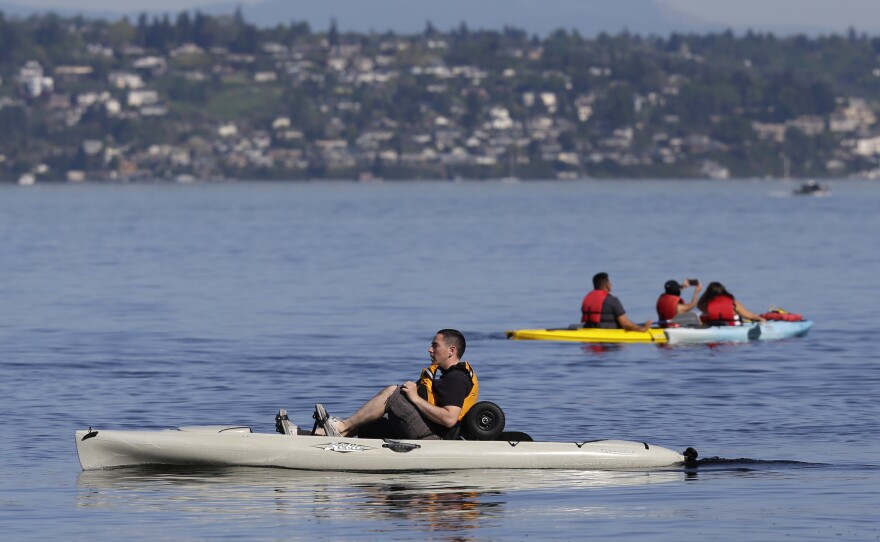The COVID-19 pandemic has led to a surge in recreational boating, as people look for more ways to get outdoors. In Washington, both sales and registrations of new watercraft went up in 2020. Authorities also issued thousands of new boater education cards – a trend that has continued this year -- and they believe the lessons learned are keeping more people safe.
Last year, recreational boating fatalities remained flat compared to 2019, despite a huge increase in the number of people getting out on the water. There were 28 deaths both years in Washington. Yet, as they mark National Safe Boating Week, local officials say the rise in human-powered vessels is still cause for concern.
“The area that’s going up is in human-powered watercraft fatalities,” says Rob Sendak, the boating programs manager at Washington State Parks.
He says there’s a number one cause for these deaths.
“In 2020, over 70 percent of those victims did not have on a life vest,” Sendak says.
And Sendak says people don’t realize that falling into cold water here is often deadly -- because of a phenomenon known as "cold water shock." Even on a hot day, Washington waters remain below 60 degrees year-round. The gasp reflex that happens when a boater unintentionally becomes a swimmer in those cold temps can cause people to inhale water. This often leads to drowning, especially for boaters who fail to wear a life jacket.
It’s a key message in courses offered by Washington state boating authorities. But it’s easy to buy or rent a kayak or paddleboard and just get out on the water, no boater education required.
Another issue with these smaller vessels is when people let them go adrift. Paddleboards are built to be swift and can easily escape their owners. Kayaks are light. But if they get lost without their owners, it can quickly become costly for taxpayers.
“Any time a kayak floats off offshore could be an accident; we're going to be treating it like there is someone in distress. And we will be using our assets to make sure that if there is someone in distress, we can try to find them and make them safe,” says U.S. Coast Guard Lt. Lucy Wright with the Puget Sound Enforcement Division.
She stresses their commitment to public safety, but wants to ensure people aren’t careless.
“Each one of these cases ends up costing the Coast Guard about $40,000,” she says, adding that the Coast Guard has responded to nearly 750 of these incidents since 2016, just in the four-state division that includes Washington.
They are urging boaters to label their small craft with contact information to help limit search time and false alarms.
Also important for paddle boarders: Use a leash to keep the board from drifting. It not only prevents you from losing your board, but it also serves as a floatation device, which can be lifesaving.
A free online safety course for paddlers is available online at boatered.org
You can also find information there on safety education requirements for motorized watercraft and additional courses that may be taken for a fee.








